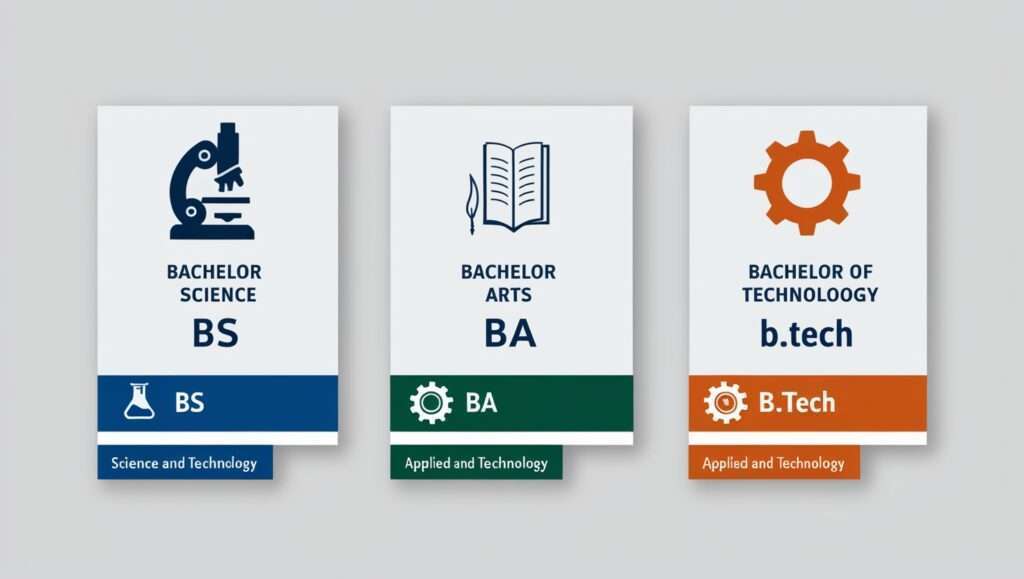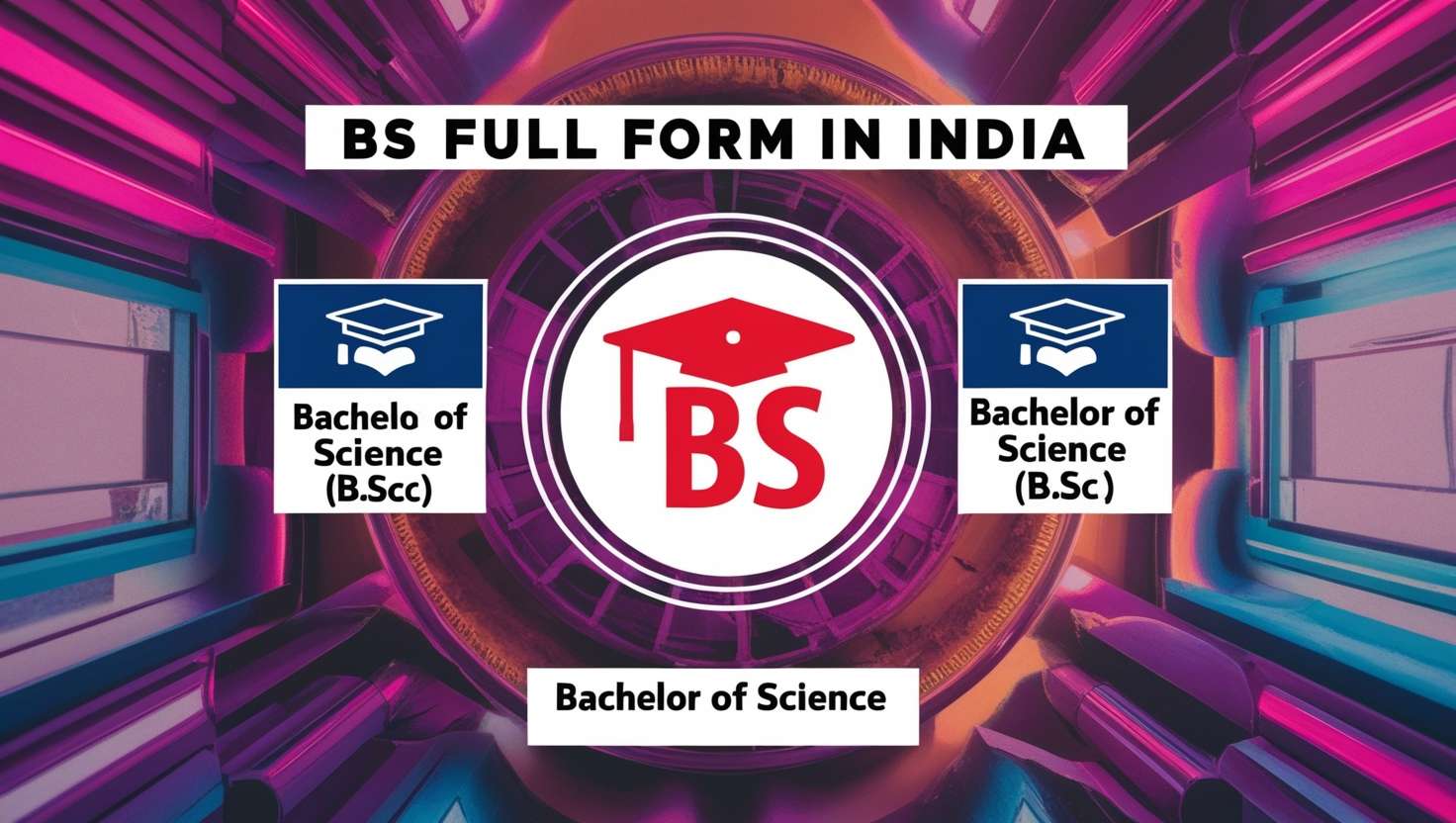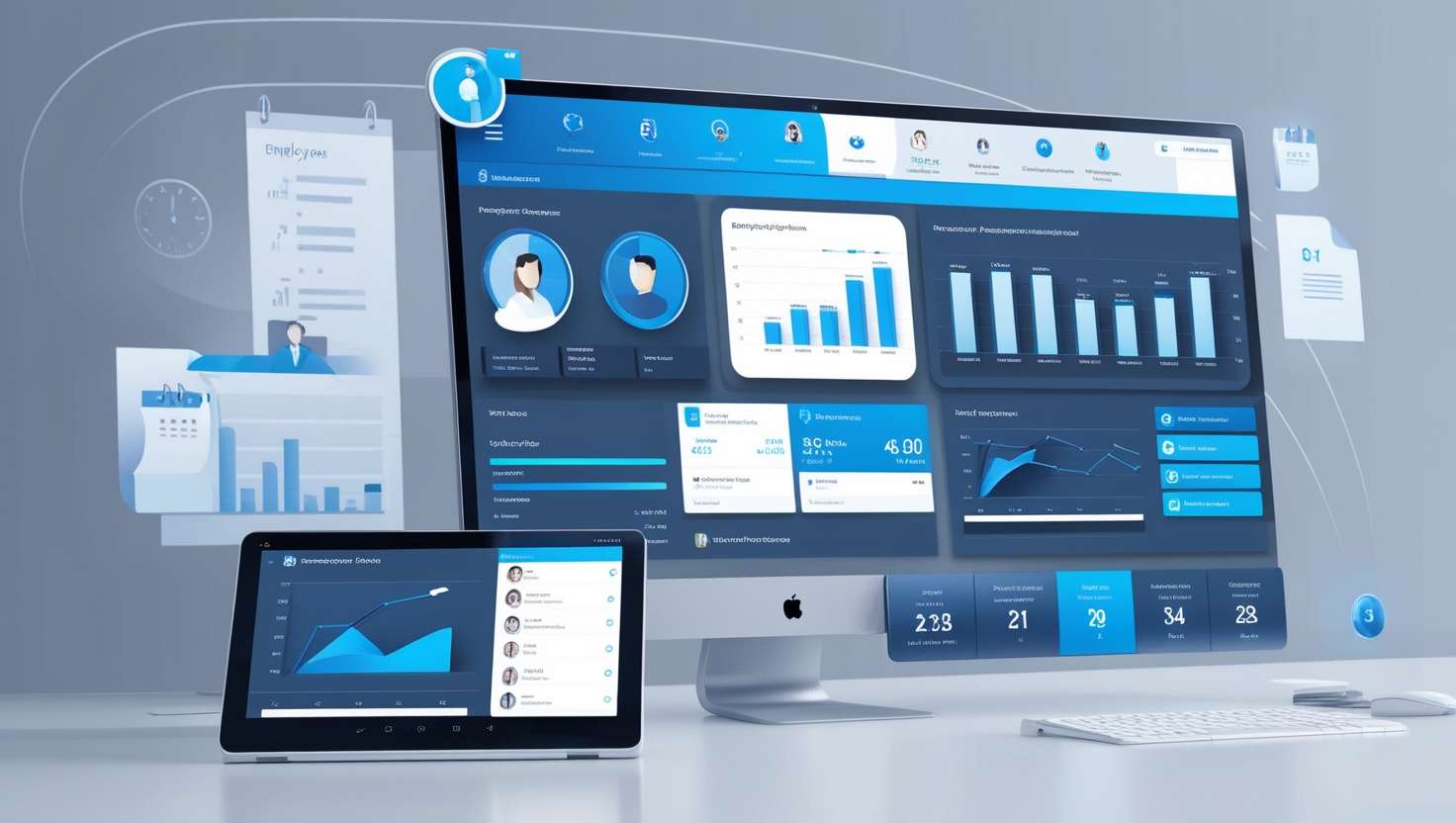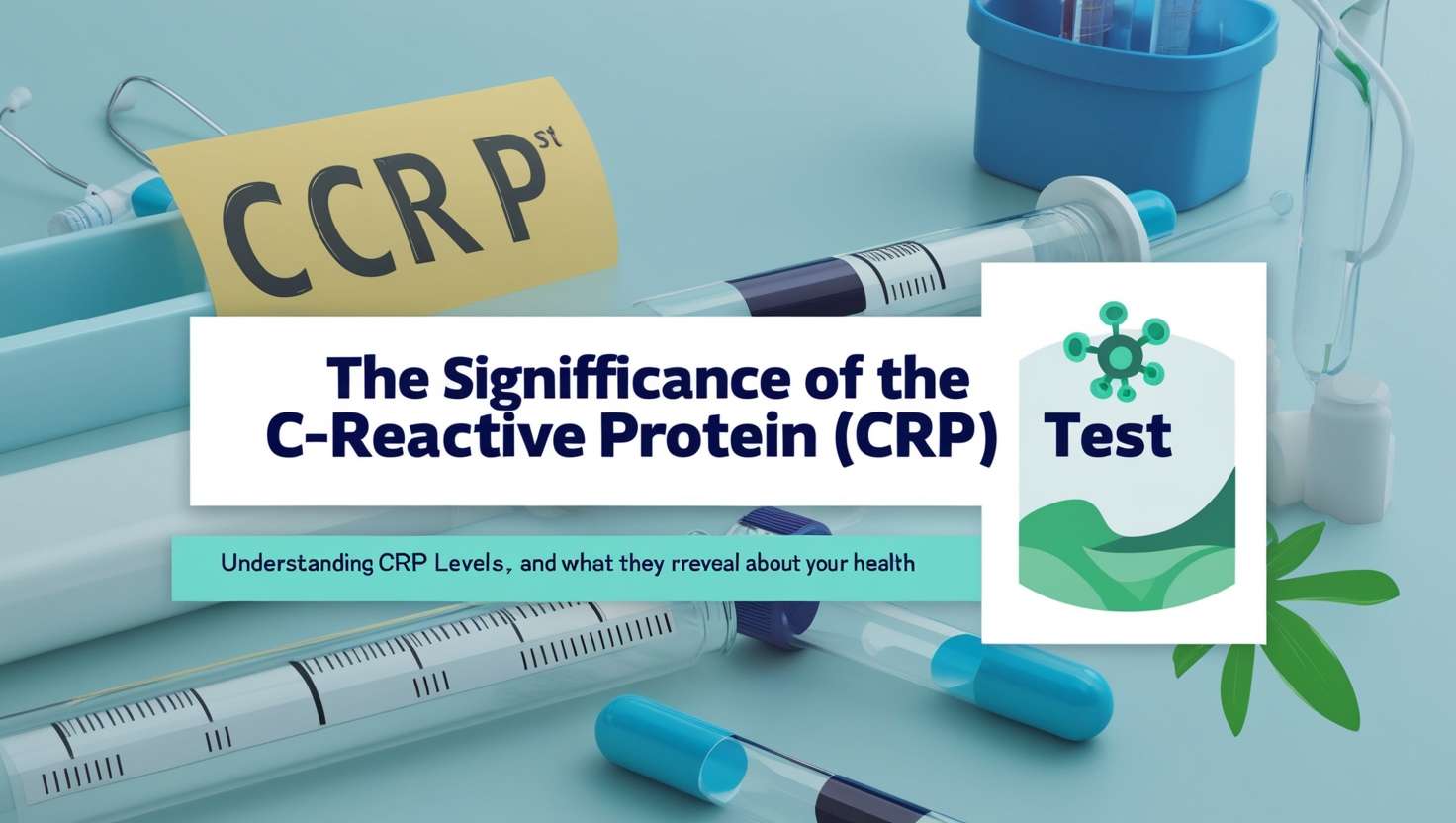Full Form of BS
BS Full Form stands for Bachelor of Science degree shows a big academic achievement. It means a student has finished a complete undergraduate program that usually lasts four years. BS degrees mainly focus on scientific and technical areas, highlighting practical skills and knowledge.
These programs include organized coursework, lab work, research projects, and sometimes internships. This helps graduates gain special knowledge and a solid base for future jobs or more studies in their field. By choosing a BS degree, a student often shows interest in a career in science, technology, engineering, or mathematics (STEM).
Introduction
In higher education, it’s important for students to know about the different types of undergraduate degrees. One option that stands out is the Bachelor of Science degree, which many people call a BS degree. This blog will explain what a BS degree is, why it matters, and other details to consider when thinking about getting a Bachelor of Science degree in the education system.
Key Highlights
BS stands for Bachelor of Science, which is a college-level degree you can get from schools all over the world.
- BS stands for Bachelor of Science, which is a college-level degree you can get from schools all over the world.
- A BS degree typically focuses on scientific and technical disciplines, emphasizing practical skills and theoretical knowledge.
- Core subjects in BS programs vary but commonly include mathematics, natural sciences, and computer science.
- Compared to a BA, a BS degree often involves more specialized coursework and may include research projects or laboratory work.
- Career prospects for BS graduates are generally favorable, with opportunities in various sectors like healthcare, technology, and engineering.
Definition of BS
BS means Bachelor of Science. It is an undergraduate academic degree given to students who finish a study program in a scientific or technical area. In the global higher education system, a bachelor of science degree usually takes four years of full-time study. This degree can lead to different careers or further studies.
The BS degree plan focuses on a strong base in mathematics, natural sciences, and related subjects. Students learn through coursework, lab work, and research projects. They get both theoretical knowledge and hands-on skills.
BS programs are tough and aim to prepare graduates with the skills they need to succeed in their fields. Also, a bachelor of science degree can help students who want to continue their studies in master’s or doctoral programs. This is for those who wish to specialize more or get into research.
How has the BS Degree Changed Over Time in India ?
The Bachelor of Science (BS) degree in India shows how the country has worked hard to build a strong education system. At first, Indian universities mostly offered BA degrees. This was because they were influenced by the British education system during colonial times. However, after gaining independence, India saw a rise in demand for science and technical skills, making BS degrees more important.
In the 1950s and 1960s, many science colleges opened and existing universities added science departments. This was to support more university students who wanted to work in STEM fields. Over time, BS degrees have become well-respected in the Indian job market.
Today, there are many specializations under the BS degree. This shows how industries are changing and how scientific research is moving forward. The growth of the BS degree indicates that the Indian education system is adapting to meet global standards and preparing university students for a world that relies on technology.
Different Facets of BS Degrees
BS degrees cover many subjects, giving students specific knowledge and skills. They include everything from natural sciences to engineering. BS programs provide different paths for learning and career growth.
This section will look at the main subjects in different BS programs. It will also discuss how electives help create a complete educational experience. Knowing this information helps future students make smart choices that match their interests and goals.
Core Subjects Covered Under BS Programs
Core subjects are key to a bachelor of science degree. They help students understand important scientific and technical ideas. Different schools may have different requirements, but many common subjects appear in most BS programs.
- Mathematics : Provides analytical and problem-solving skills applicable in various fields. Courses usually have things like calculus, linear algebra, and statistics.
- Natural Sciences : Physics, chemistry, and biology offer fundamental insights into the physical world and its principles.
- Computer Science and Engineering : Courses may include programming, algorithms, and systems engineering, depending on the specialization.
Elective Options in BS Curriculum
Core subjects give students a strong base. However, electives in a bachelor of science degree let students focus on specific interests. Elective choices provide flexibility. Students can match their courses with their career goals or explore different fields.
Students can pick electives that deepen their knowledge in their major. They can also choose electives in related subjects to expand their understanding. This helps them be more versatile and adaptable in the job market. For example, a student studying computer science might take electives in artificial intelligence, cybersecurity, or data science to gain more skills.
By choosing electives wisely, students can add to their core knowledge, learn new skills, and create a more personal education journey. Electives often include chances for hands on learning, research, or internships, making the whole educational experience richer.

Comparing BS and Other Degrees
It is important for students to know the differences between a BS degree and other undergraduate degrees like a BA and B.Tech. Each degree has its own benefits and job options. Knowing what sets them apart can help students make the right choices based on what they like and want to achieve.
In the sections ahead, we will look at BS degrees compared to BA and B.Tech. We will focus on their main areas, typical classes, and possible career paths. By studying these differences, students can find the best degree that matches their dreams and skills.
| Degree Type | Focus | Curriculum | Skills Developed | Career Paths | Typical Duration |
|---|---|---|---|---|---|
| Bachelor of Science (BS) | Math, natural sciences, technical areas | Quantitative work, lab experiments, scientific problem-solving, theoretical knowledge | Analytical thinking, problem-solving, research skills | STEM fields (e.g., engineering, computer science, healthcare), research | 3-4 years |
| Bachelor of Arts (BA) | Humanities, social sciences, fine arts, languages | Broad range of subjects including communication, critical thinking, and cultural studies | Communication, critical thinking, cultural awareness | Education, writing, social work, public relations, arts | 3-4 years |
| Bachelor of Technology (B.Tech) | Applied technology and engineering | Practical training, internships, hands-on projects, industry-specific technical skills | Technical expertise, practical problem-solving, project management | Technical industry roles (e.g., engineering, IT, manufacturing) | 4 years |
Career Prospects with a BS Degree
Earning a BS degree creates many job options in different fields. Graduates with a BS degree are in high demand because they have special knowledge, strong analytical skills, and the ability to solve problems.
The need for BS graduates keeps increasing as technology develops quickly. Industries want skilled workers to help them innovate and solve tough issues. Whether working in research, healthcare, technology, finance, or environmental science, those with a BS degree have a solid base to succeed in their careers and make a real impact in their fields.
Industry Sectors Hiring BS Graduates
- Healthcare: A BS degree in biology, chemistry, or biochemistry can lead to good jobs in medicine, pharmaceuticals, biotechnology, and healthcare management.
- Technology: The growing tech industry has many opportunities for BS graduates who specialize in computer science, information science, software engineering, and data science.
- Engineering: BS degrees in mechanical engineering, chemical engineering, electrical engineering, or civil engineering are important in many areas, like manufacturing, construction, energy, and aerospace.
These are only a few fields. Other industries such as finance, environmental science, research and development, and business administration also look for BS graduates with strong analytical skills, technical knowledge, and a solid scientific background.
Expected Salary Range in India
| Factor | Description | Starting Salary Range (INR per annum) | Experienced Salary Range (INR per annum) |
|---|---|---|---|
| General BS Graduates | Entry-level positions across various fields. | 4 – 8 lakhs | 8 – 15 lakhs |
| Specialization: Computer Science/IT | High demand for software and IT skills. | 6 – 12 lakhs | 15 – 25 lakhs |
| Specialization: Engineering (e.g., Chemical, Biotechnology) | In-demand in research, development, and industrial roles. | 5 – 10 lakhs | 12 – 20 lakhs |
| Specialization: Pharmaceuticals | Roles in research, development, and production. | 4 – 8 lakhs | 10 – 18 lakhs |
| Location: Metro Cities (e.g., Mumbai, Delhi, Bangalore) | Higher cost of living and more opportunities. | 6 – 12 lakhs | 15 – 25 lakhs |
| Location: Tier 2 Cities (e.g., Pune, Ahmedabad) | Moderate cost of living, relatively fewer opportunities compared to metro cities. | 4 – 8 lakhs | 8 – 15 lakhs |
| Location: Tier 3 Cities | Lower cost of living, fewer opportunities. | 3 – 6 lakhs | 6 – 12 lakhs |
| Employer Type: MNCs | Typically offer higher salaries and better growth opportunities. | 8 – 15 lakhs | 20 – 35 lakhs |
| Employer Type: Startups | Varied salary structures; may offer equity or growth potential. | 4 – 8 lakhs | 8 – 18 lakhs |
| Experience Level: Entry | Less than 2 years of experience. | 4 – 8 lakhs | – |
| Experience Level: Mid-Level | 2 to 5 years of experience. | 8 – 15 lakhs | – |
| Experience Level: Senior | 5+ years of experience; managerial or specialist roles. | – | 15 – 30 lakhs |
Top Institutions Offering BS Degrees in India
| Institution | Programs Offered | Specializations | Admission Process | Eligibility Criteria |
|---|---|---|---|---|
| Indian Institute of Technology (IIT) | BS in Engineering, BS in Technology | – Computer Science – Electrical Engineering – Mechanical Engineering – Chemical Engineering | – JEE Main & Advanced – Institute-specific tests | – Completion of 10+2 with Physics, Chemistry, Mathematics – High scores in JEE Main & Advanced |
| University of Delhi | BS in Science, BS in Computer Applications | – Physics – Chemistry – Mathematics – Computer Science | – DUET (Delhi University Entrance Test) – Merit-based for some courses | – Completion of 10+2 with relevant subjects – Minimum aggregate percentage as per course requirements |
| Jawaharlal Nehru University (JNU) | BS in Science, BS in Technology | – Biotechnology – Physical Sciences – Mathematical Sciences | – CUCET (Central Universities Common Entrance Test) | – Completion of 10+2 with relevant science subjects – Score in CUCET |
| Indian Institute of Science (IISc) | BS in Science | – Mathematics – Physics – Chemistry | – KVPY (Kishore Vaigyanik Protsahan Yojana) – JEE Main & Advanced | – Completion of 10+2 with Physics, Chemistry, Mathematics – High scores in KVPY or JEE |
| Birla Institute of Technology and Science (BITS), Pilani | BS in Engineering, BS in Science | – Electronics & Instrumentation – Civil Engineering – Biotechnology | – BITSAT (BITS Admission Test) | – Completion of 10+2 with Physics, Chemistry, Mathematics – High scores in BITSAT |
| VIT University | BS in Engineering, BS in Computer Science | – Computer Science – Electrical & Electronics – Mechanical Engineering | – VITEEE (VIT Engineering Entrance Examination) | – Completion of 10+2 with Physics, Chemistry, Mathematics – High scores in VITEEE |
| SRM Institute of Science and Technology | BS in Engineering, BS in Science | – Computer Science – Aerospace Engineering – Civil Engineering | – SRMJEEE (SRM Joint Engineering Entrance Exam) | – Completion of 10+2 with Physics, Chemistry, Mathematics – High scores in SRMJEEE |
| National Institute of Technology (NIT) | BS in Engineering | – Civil Engineering – Chemical Engineering – Computer Science | – JEE Main – Institute-specific tests | – Completion of 10+2 with Physics, Chemistry, Mathematics – High scores in JEE Main |
- Admission Process: Most institutions require entrance exams such as JEE Main, CUCET, or BITSAT, though some may also consider merit-based admissions or other tests.
- Eligibility Criteria: Generally includes completion of 10+2 education with a focus on science subjects (Physics, Chemistry, Mathematics) and high scores in relevant entrance exams.
Conclusion
In conclusion, it is important to understand how valuable a BS degree is in today’s job market. The BS degree in India has changed a lot and now offers many job options with good salaries. The best schools in India have special programs that include hands on experience. This helps connect learning with what industries need. When deciding between a BS and other degrees, you should know the key differences. No matter if you studied commerce or arts, getting a BS degree can lead you to many different jobs. A Bachelor of Science (BS) degree can significantly enhance your prospects for career success.
Our Latest Posts:
- 🔥 Best Phone Under 20000 in India (2026): AI-Powered Smartphones That Redefine Budget Tech 📱
- 🔒 How to Protect Your Phone from Hidden Malware: Complete Guide 2025
- What Are Gen Z & What Generation Is Z? A Complete Guide
- The Ultimate Guide: What Is the Longest in the World? 🌍
- Machine Learning Time Series Regressions with an Application to Nowcasting



